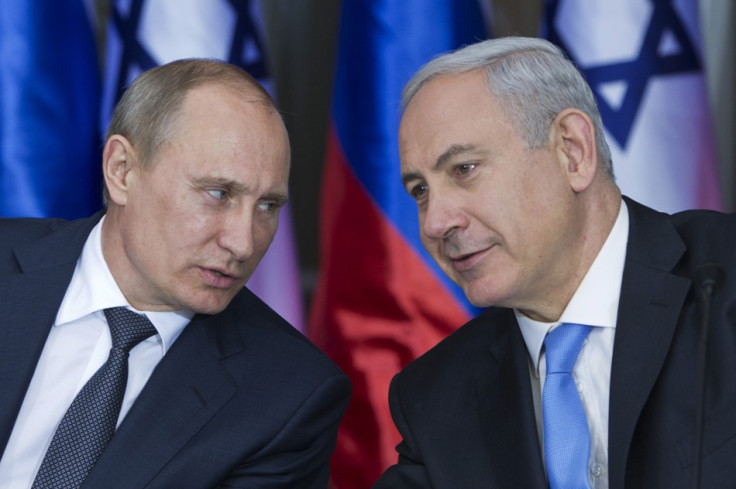Netanyahu to Persuade Putin to Halt Syria Arms Shipment

Israeli Prime Minister Benjamin Netanyahu will fly to Russia later this week to meet President Vladimir Putin in a bid to persuade him to stop arms shipment to the Syrian regime.
Moscow continues its arms supply to Damascus fulfilling its earlier contracts with Syrian President Bashar al-Assad despite ongoing civil war.
According to an earlier report by the Wall Street Journal, Russia is intending to ship S-300 missile batteries to Assad. If the advanced ground-to-air missiles reach Assad's hands, it will prove vital in the balance of power between the regime and the rebels.
The missiles are capable of bringing down fighter jets and intercept cruise missiles.
When asked by the reporters about the deal, Russian foreign minister Sergei Lavrov said, "Russia is not planning to sell. Russia has been selling for a long time, has signed contracts and is completing deliveries of technology that consists of anti-aircraft systems."
Netanyahu is believed to be worried that the sophisticated missiles would reach the Lebanon-based Shiite militant group Hezbollah. Earlier, both Assad's regime and Hezbollah have hinted that Damascus is ready to arm Hezbollah with latest weapons.
"Netanyahu plans to visit Russia. The main theme [of discussions] will be the export of weapons to Syria," a source who is familiar with the matter told Moscow's RIA Novosti.
The Israeli leader is likely to meet Putin in his residence in Sochi on the Black Sea Coast however the exact date has not been confirmed yet. The two leaders have also held a telephone conversation over the matter, suggest reports.
Washington has refused to directly address the issue as the White House spokesperson Jay Carney said, "We are aware of the reports. But I have no further information for you on it. We have consistently called on Russia to cut off the Assad regime's supply of Russian weapons, including air defence systems that are destabilizing to the region."
© Copyright IBTimes 2025. All rights reserved.






















